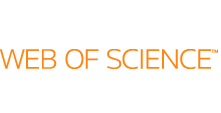Self-assessment of ESP oral performance: A tool for learning and fostering learner awareness.
DOI:
https://doi.org/10.15503/jecs2020.1.146.162Keywords:
self-assessment, ESP oral performance, gaps and difficulties in ESP oral performance, learner awareness, higher educationAbstract
Aim. Research to date acknowledges the learning, instructional and assessment advantages of self-assessment used in different fields of study in higher education contexts, yet little known research has focused on its use for learning and raising learner awareness while studying English for Specific Purposes (ESP). To this end, the present small-scale study examines the use of self-assessment of philology students’ ESP oral performance at a university in Lithuania.
Method. The data for this research was collected from undergraduate students’ written reports on their project presentations on the chosen ESP topics. To analyse the data, qualitative methodology of inductive content analysis was used.
Results. The study resulted in the identification of five major dimensions covering problem areas in the students’ ESP oral performance. The findings indicate that self-assessment enabled the students not only to identify some gaps and difficulties in their ESP oral performance that call for action but also to establish the reasons which caused them, foresee how the gaps can be closed or the difficulties coped with. Furthermore, it allowed the students to make decisions that reached far beyond the self-assessment task. The results also demonstrate that self-assessment raised the students’ awareness of themselves as learners by giving them direction on how to perform better in the future.
Conclusion. Self-assessment, as used in the present research, proves to be a valuable tool both for the students of ESP and their teachers as it reveals areas in the students’ performance that call for improvement, which enables ESP teachers to support their students to achieve better results in the future.
Downloads
References
Andrade, H. & Valtcheva, A. (2009). Promoting learning and achievement through self- assessment. Theory into practice, 48(1), 12-19.
Birjandi, P. & Tamjid, N. H. (2012). The role of self-, peer- and teacher assessment in promoting Iranian EFL learners’ writing performance. Assessment & evaluation in higher education, 37(5), 513-533.
Boud, D. (2000). Sustainable assessment: rethinking assessment for the learning society. Studies in continuing education, 2, 151-167.
Boud, D. & Falchikov, N. (1989). Quantitative studies of student self-assessment in higher education: A critical analysis of findings. Higher education, 18, 529-549.
Boud, D. & Falchikov, N. (Eds.). (2007). Rethinking assessment in higher education: learning for the longer term. London, New York: Routledge.
Bourke, R. (2018). Self-assessment to incite learning higher education: developing ontological awareness. Assessment & evaluation in higher education, 43(5), 827-839.
Author & Teresevičienė, M. (2008). Integrating alternative learning and assessment in a course of English for law students. Assessment & evaluation in higher education, 33(2), 155-166.
Common European framework of reference for languages: learning, teaching, assessment. (2001). Council of Europe: Cambridge University Press. Retrieved from: https://www.coe.int/en/web/portfolio/the-common-european-framework-of-reference-for-languages-learning-teaching-assessment-cefr-
Dochy, F., Segers, M. R., & Sluijsmans, D. (1999). The use of self-, peer, and co-assessment in higher education: a review. Studies in higher education, 24(3), 331-350.
Hanrahan, S. J. & Isaacs, G. (2001). Assessing self- and peer-assessment: the students’ view. Higher education research and development, 20(1), 53-70.
Hettie, J. & Timperley, H. (2007). The power of feedback. Review of educational research, 77(1), 81-112. https://doi.org/10.3102/003465430298487.
Huang, S.-C. (2016). Understanding learners‘ self-assessment and self-feedback on their foreign language speaking performance. Assessment & evaluation in higher education, 41(6), 803-820.
Kavaliauskienė, G., Kaminskienė, L., & Anusienė, L. (2007). Reflective practice: assessment of assignments in English for Specific Purposes. Ibérica, 14, 149-166.
Knight, P. (2001). A Briefing on key concepts. Formative and summative, criterion and norm-referenced assessment. York: Learning and Teaching Support Network Generic Centre.
Matsuno, S. (2009). Self-, peer, and teacher-assessments in Japanese university EFL writing classrooms. Language testing, 26(1), 75-100.
McDonald, B. & Boud, D. (2003). The impact of self-assessment on achievement: the effects of self-assessment training on performance in external examinations. Assessment in education: principles, policy & practice, 10(2), 209-220.
McNamara, M. J. & Deane, D. (1995). Self-assessment activities: toward language autonomy in language learning. TESOL, 5, 17-21.
Micán, A. D. & Medina, L. C. (2017). Boosting vocabulary learning through self-assessment in an English language teaching context. Assessment & evaluation in higher education, 42(3), 398-414.
Mok, M. M. C., Lung, C. L., Cheng, D. P. W., Cheung, R. H. P., & Ng, M. L. (2006). Self-assessment in higher education: experience in using a metacognitive approach in five case studies. Assessment & evaluation in higher education, 31(4), 415-433.
Nedzinskaitė, I., Švenčionienė, D., & Zavistanavičienė, D. (2006). Achievements in language learning through students’ self-assessment. Studies about languages, 8, 84-87.
Nulty, D. (2011). Peer and self-assessment in the first year of university. Assessment & evaluation in higher education, 36(5), 493-507.
Ryan, G. J., Marshall, L. L., Porter, K., & Jia, H. (2007). Peer, professor and self-evaluation of class participation. Active learning in higher education, 8, 48-61.
Tan, K. H. K. (2004). Does student self-assessment empower or discipline students? Assessment & evaluation in higher education, 29(6), 651-662.
Taras, M. (2010). Student self-assessment: processes and consequences. Teaching in higher education, 15(2), 199-209.
Ünaldi, I. (2016). Self and teacher assessment as predictors of proficiency levels of Turkish EFL learners. Assessment & evaluation in higher education, 41(1), 67-80.
Downloads
Published
Issue
Section
License
CC-BY
Authors retain copyright and grant the journal right of first publication with the work simultaneously licensed under a Creative Commons Attribution License that allows others to share the work with an acknowledgement of the work's authorship and initial publication in this journal. All authors agree for publishing their email adresses, affiliations and short bio statements with their articles during the submission process.




